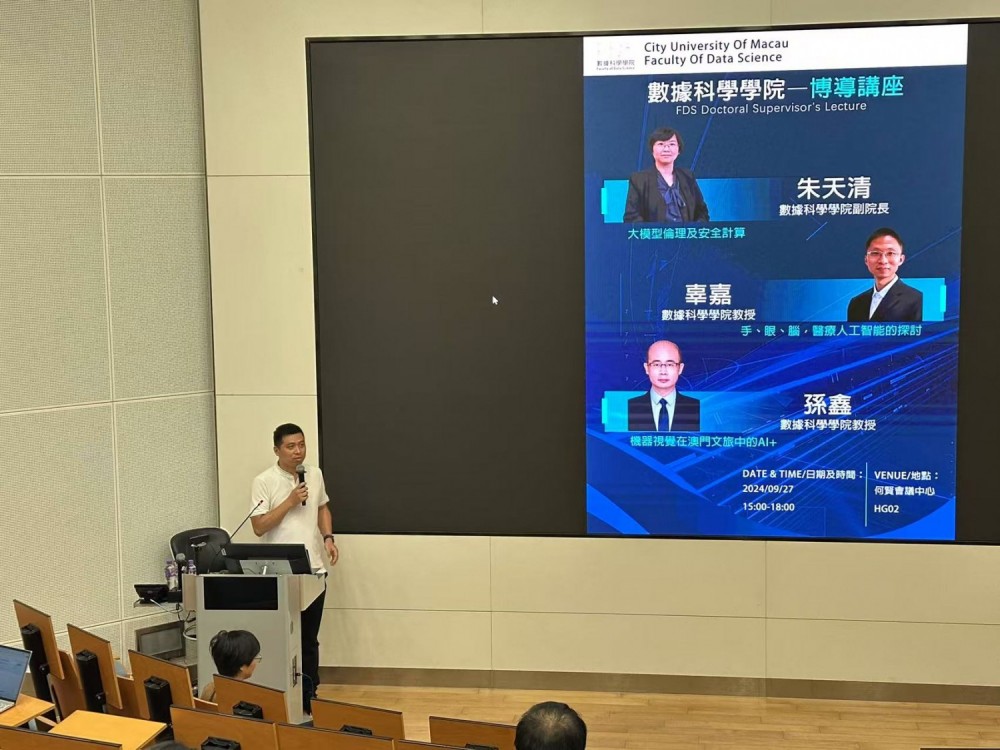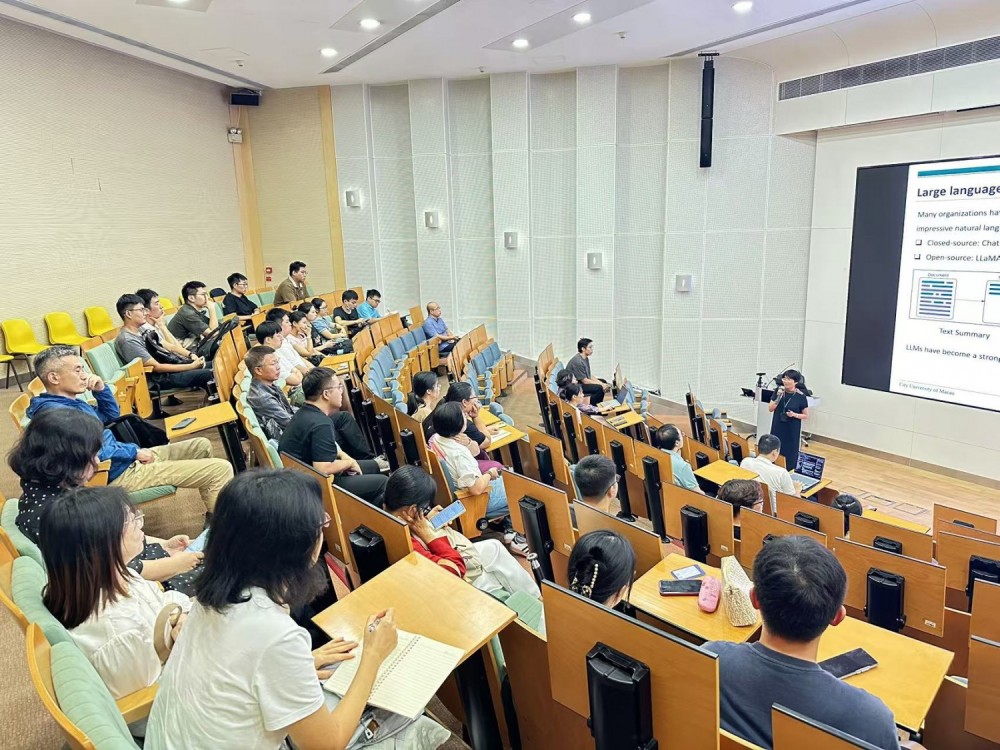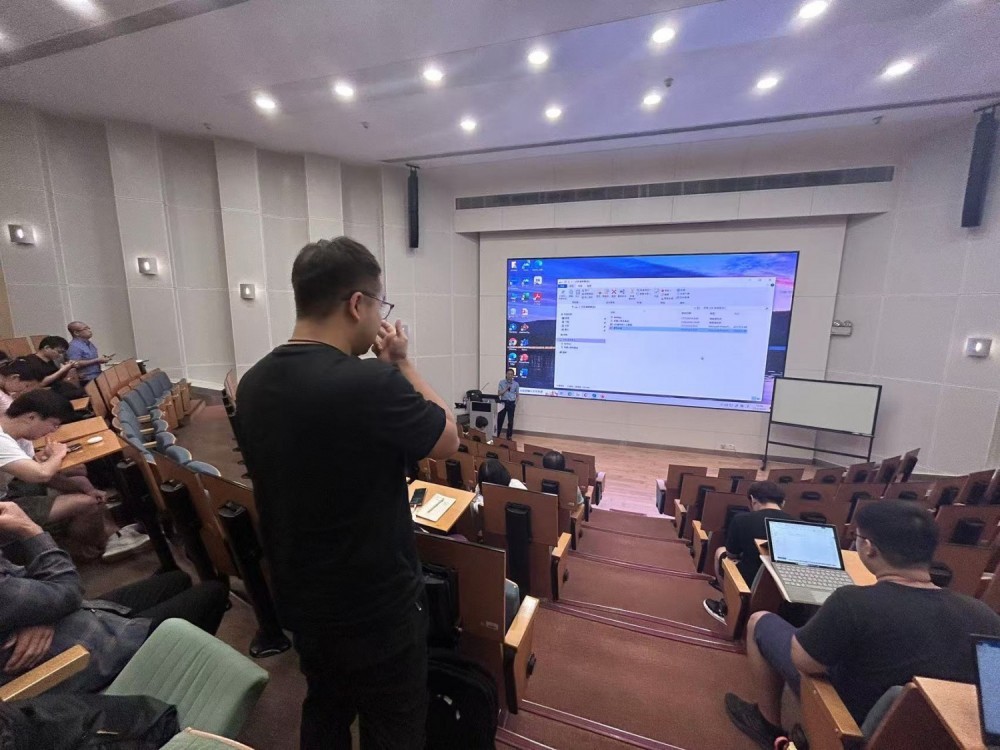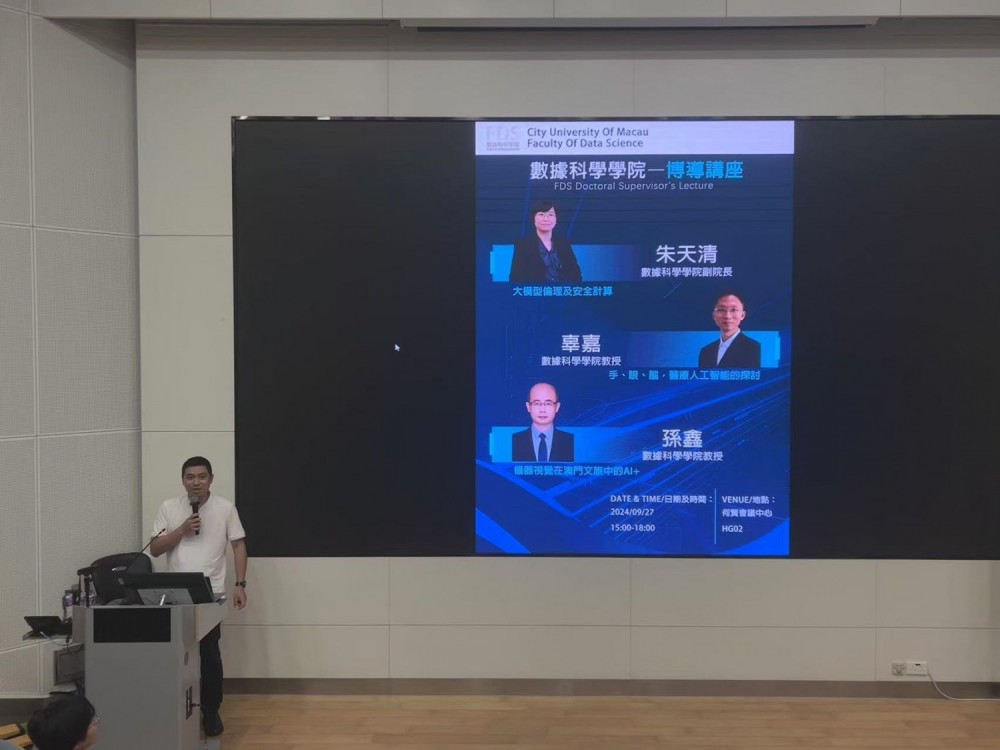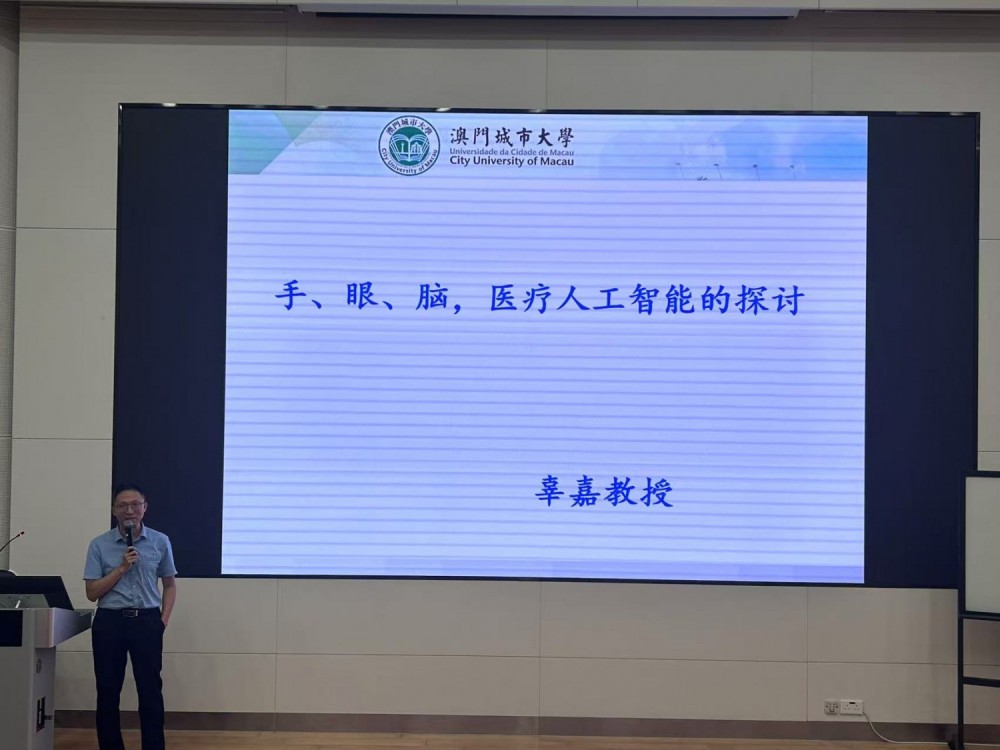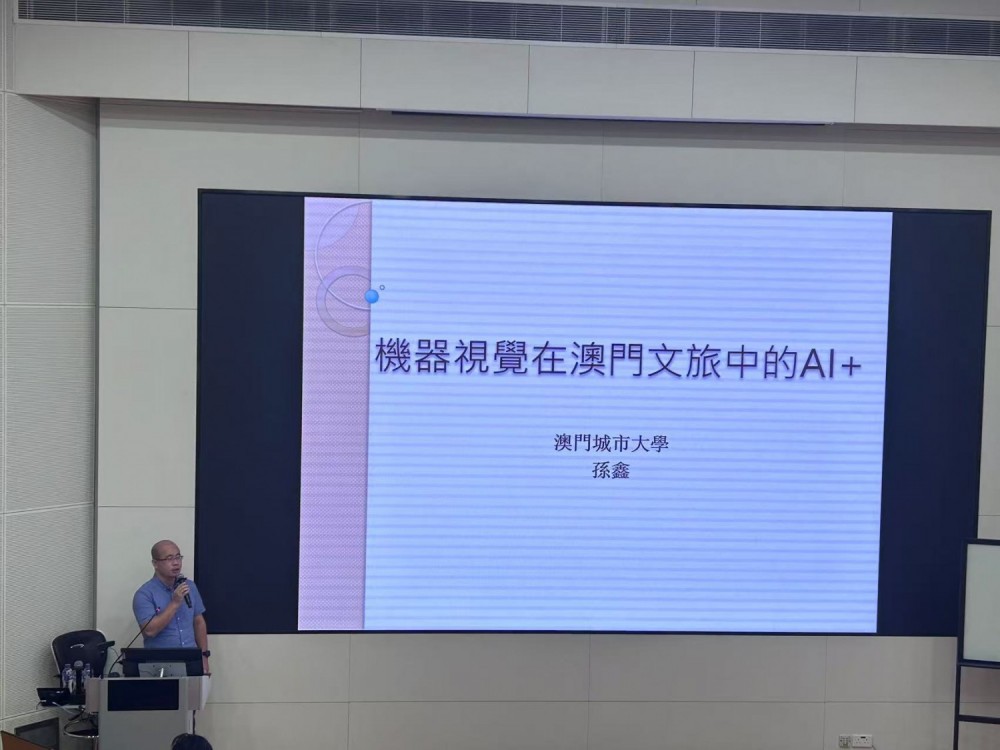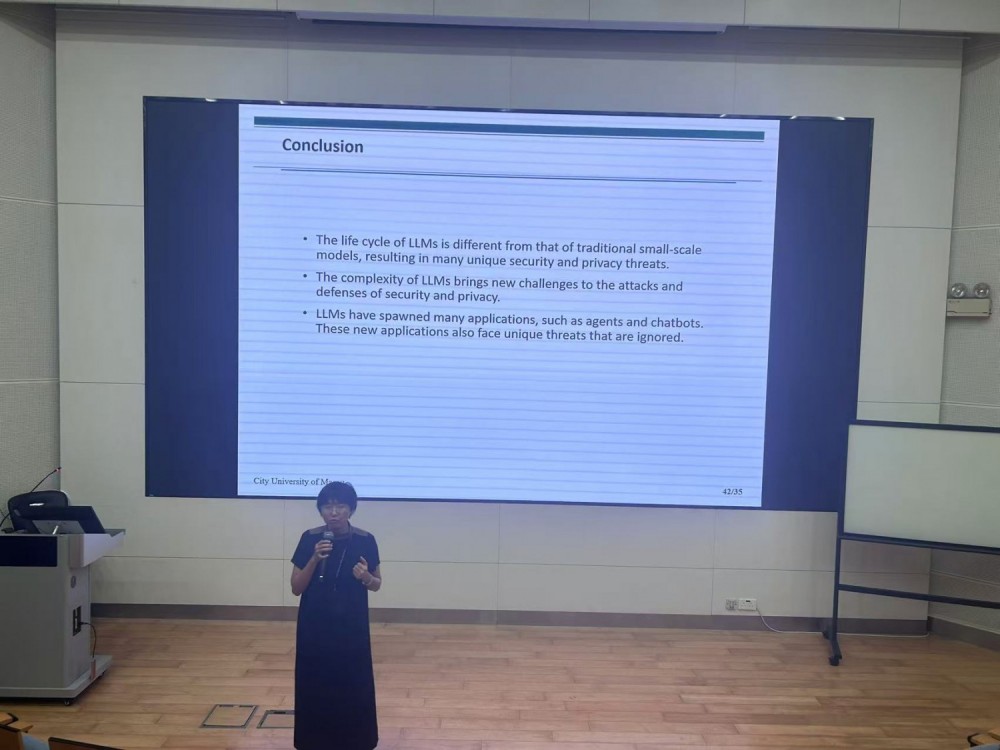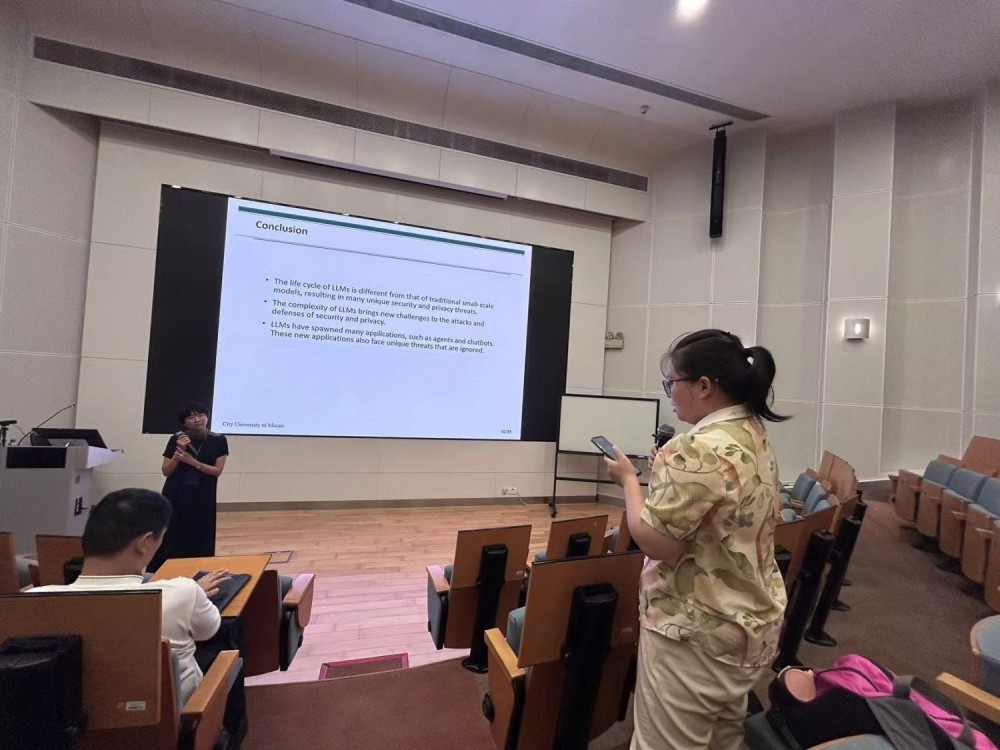The Faculty of Data Science held a lecture for doctoral supervisors in the afternoon of September 27, 2024, at the Ho Yin Conference Center HG02. This lecture was given by Professor Tianqing Zhu, Vice Dean of the Faculty of Data Science, Professor Jia Gu and Professor Sun Xin , and hosted by Associate Professor Zuobin Ying, Coordinator of the doctoral programme. A total of 53 teachers and students participated.
The topic shared by Vice Dean Professor Tianqing Zhu is "Unique Security and Privacy Threats of Large Language Models". Professor Zhu first introduced the basic concepts and characteristics of Large Language Model (LLM), including its huge model parameters, high-quality response generation capabilities and special context perception and memory capabilities. He discussed in detail the role of LLM in pre-training, fine-tuning, retrieval-Augmented Generation (RAG) security and threats faced by different life cycle stages such as system and deployment. In order to deal with these challenges, Professor Zhu proposed a series of countermeasures such as data cleaning, model defense mechanisms, privacy protection technologies and security training methods. Finally, the future research directions of LLM are also discussed, such as federated learning and watermarking technology. These technologies are expected to promote the development of LLM while protecting user privacy.
Professor Jia Gu delivered a speech titled "Hands, Eyes, Brain, Discussion on Medical Artificial Intelligence", demonstrating his team's breakthrough research in the field of medical artificial intelligence. Professor Jia Gu introduced how to use image analysis, visualization, reconstruction and prediction technology to promote the development of minimally invasive surgery, with special emphasis on the role of smart endoscopes and surgical instruments in improving surgical accuracy and safety. By cooperating with medical institutions, key technologies such as image quality enhancement, 3D modeling and multi-modal image fusion are used to improve the image quality during surgery and achieve accurate 3D reconstruction of the surgical area. At the same time, Professor Gu Jia also discussed technologies such as computer-aided diagnosis and real-time navigation and positioning. The application of these technologies is expected to greatly improve the quality and efficiency of medical services.
Professor Xin Sun took "AI+ of Machine Vision in Macau's Cultural Tourism" as the theme and deeply discussed the application of machine vision technology in the field of cultural tourism, especially how to use artificial intelligence to enhance Macau's tourism experience. He pointed out the challenges faced by Macau's cultural tourism industry such as unreasonable resource allocation and lack of immersive experience and emphasized the necessity of intelligent tourism recommendations. Professor Sun demonstrated 3D models created through drones and terrestrial laser scanning technology, and how historical artworks can be "resurrected" through digital technology to provide visitors with an immersive experience. At the same time, Professor Sun also introduced the potential of virtual reality (VR) and augmented reality (AR) technologies in providing interactive experiences. His team is developing a multi-modal human-computer interaction experience model, which combines audio, Various modes such as images and videos enable more natural human-computer interaction. The application of these technologies can not only enrich Macao's connotation as a world center of tourism and leisure but also enhance tourists' experience and feelings about comprehensive tourism services, providing a new direction for the future development of Macau's cultural tourism industry.
After each professor's academic sharing, there has a lively academic exchange and interaction with the students. In this doctoral supervisor's lecture, professors shared their insights and research, which not only broadened the horizons of doctoral students, but also provided valuable guidance for future academic exploration and practice.

